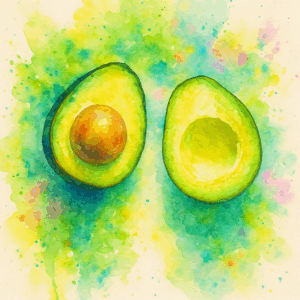Learn French with this song from Professor Rollet! Pascal Rollet is a professor and musician who has been composing songs that focus on a particular linguistic structure that gets reinforced in meaningful lyrics, set to sophisticated yet catchy contemporary music and instrumentals. Find the full song here.
Start quiz, type what you hear, then join the conversation.
Did you find this one challenging or easy? Did you hear something diffferent? What surprised you? What levels did you complete? Comment below and share what’s opening up for you with this quiz.
Learn French with this song from Professor Rollet! Pascal Rollet is a professor and musician who has been composing songs that focus on a particular linguistic structure that gets reinforced in meaningful lyrics, set to sophisticated yet catchy contemporary music and instrumentals. Find the full song here.
Learn French with this song from Professor Rollet! Pascal Rollet is a professor and musician who has been composing songs that focus on a particular linguistic structure that gets reinforced in meaningful lyrics, set to sophisticated yet catchy contemporary music and instrumentals. Find the full song here.
Expressions
What’s opening up for you with this clip?
Listen to the full song:
The snippet in English
Find a translation of this snippet here, how much of this did you hear?
Je suis de retour
tu es dans la mouise
il est débordé nous sommes bien d’accord vous êtes préoccupés
et eux, ils sont bouche bée
I’m back
You’re in trouble
He’s overwhelmed
we agree
you’re preoccupied
and they’re speechless
English translation by Deepl. Check it.
What does “la mouisse” mean?
Mouise is a familiarly informal noun meaning misery, poverty, or serious trouble. It’s used almost always in plural idioms to describe difficult situations or lack of money.
Example: Il est dans la mouise (He’s in deep trouble/lacking money)
It originates from early 19th‑century dialects in eastern France, where mouise described a low‑quality, thick soup—later extended to mean poverty or hardship.
In France, it’s common in spoken language for describing financial or personal hardship; equivalent expressions include être dans la panade or dans la purée. In Quebec, the slang être dans la marde is more common. In Francophone Africa, mouise may be understood, but speakers often prefer galère or dèche in similar contexts.
What does “débordé” mean?
Débordé means overwhelmed, swamped, or overloaded—usually referring to having too much work, emotion, or responsibility.
Example: Je suis complètement débordé en ce moment (I’m completely overwhelmed right now)
It comes from the verb déborder (to overflow), so être débordé literally means to be overflowing—metaphorically, with tasks or pressure.
In France, it’s commonly used in work or family contexts. In Quebec, usage is the same, though expressions like être dans le jus may be used more informally. In Francophone Africa, débordé is widely understood and often used in formal or educated circles.
What does “bouche bée” mean?
Bouche bée means speechless or dumbfounded—literally mouth agape. It describes someone who is so surprised, impressed, or shocked that they’re left open-mouthed.
Example: Elle est restée bouche bée devant le spectacle
(She was left speechless by the show)
– Often used with rester or être → rester bouche bée
– Expresses wonder, disbelief, or admiration
In France, it’s a vivid, common expression. In Quebec and Francophone Africa, it’s also understood, though equivalents like sans voix or éberlué might be used in writing or formal speech.
Discover the Rhythms of French with Music: Enhance Your Learning Experience
Music, with its catchy melodies and repetitive structures, is a powerful tool for language learners. It not only entertains but also reinforces linguistic patterns, making it easier to grasp and remember new vocabulary and phrases.
Why Learn French with Music?
- Cultural Immersion: French music offers a window into the rich tapestry of French culture, traditions, and history. By exploring different genres – from classic chansons to contemporary pop – you gain deeper insights into the French way of life.
- Memorable Vocabulary: Lyrics in songs are often catchy and repetitive, aiding in memorization. Music acts as a mnemonic device, making retention of new words and phrases more effective.
- Pronunciation Practice: Singing along with French songs is a fun way to improve your accent and intonation. It helps in mimicking native speech patterns and rhythms.
- Emotional Connection: Music evokes emotions, making the learning experience more engaging and memorable. You’re more likely to recall phrases associated with emotions stirred by a song.
- Diverse Learning: Through songs, you’re exposed to a variety of dialects, slangs, and expressions used in everyday French, broadening your understanding of the language.
Why Practice Transcriptions with Music to Improve Listening in French?
- Enhanced Listening Skills: Transcribing lyrics sharpens your listening abilities. It challenges you to distinguish words and phrases within the flow of music, improving your auditory comprehension.
- Contextual Learning: Understanding the lyrics within the context of a song helps in grasping the nuances of French language usage, such as idiomatic expressions and colloquialisms.
- Active Engagement: The process of transcription is an active learning exercise. It encourages you to focus intently on the language, enhancing concentration and retention.
- Grammar and Structure Exposure: Analyzing song lyrics exposes you to different grammatical structures and sentence constructions, contributing to a deeper understanding of French grammar.
Try other clips from songs on site today!
What did you love about this?
Comment below with your feedback! Tells us what you think. Send a note or leave a comment below. We appreciate the feedback. Also, we’re always looking for partners to build this site and grow the content available.








